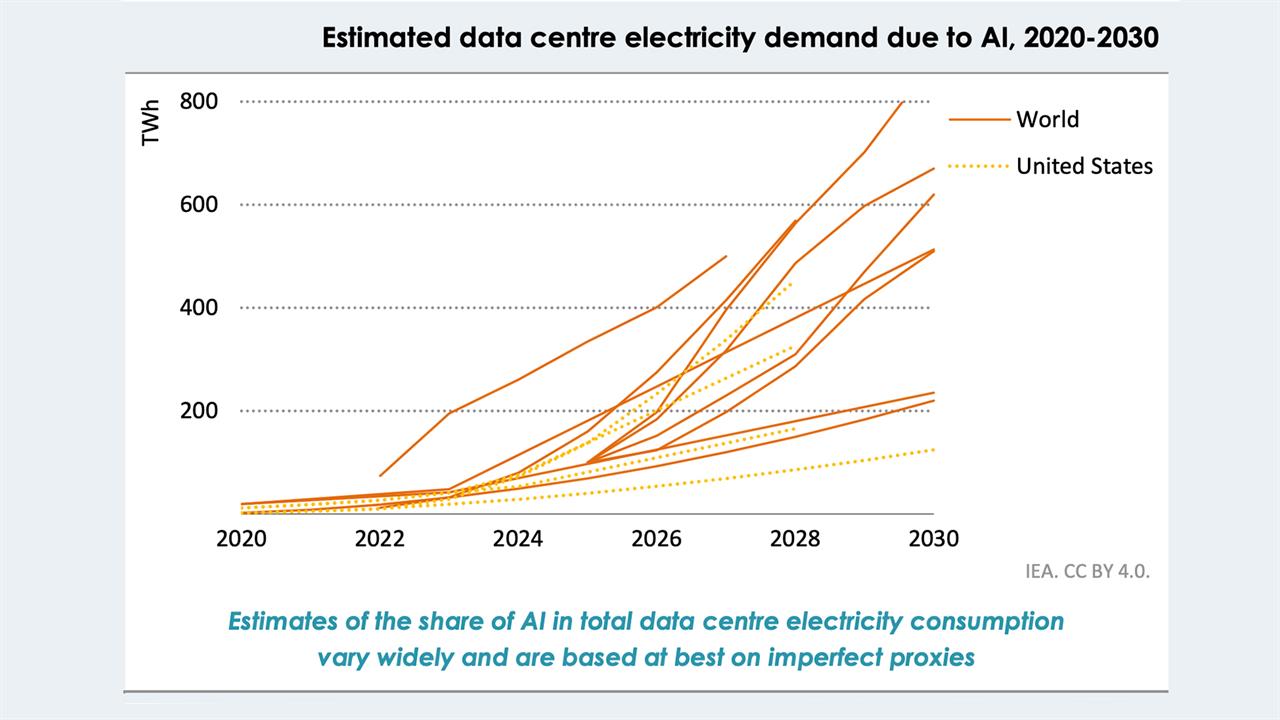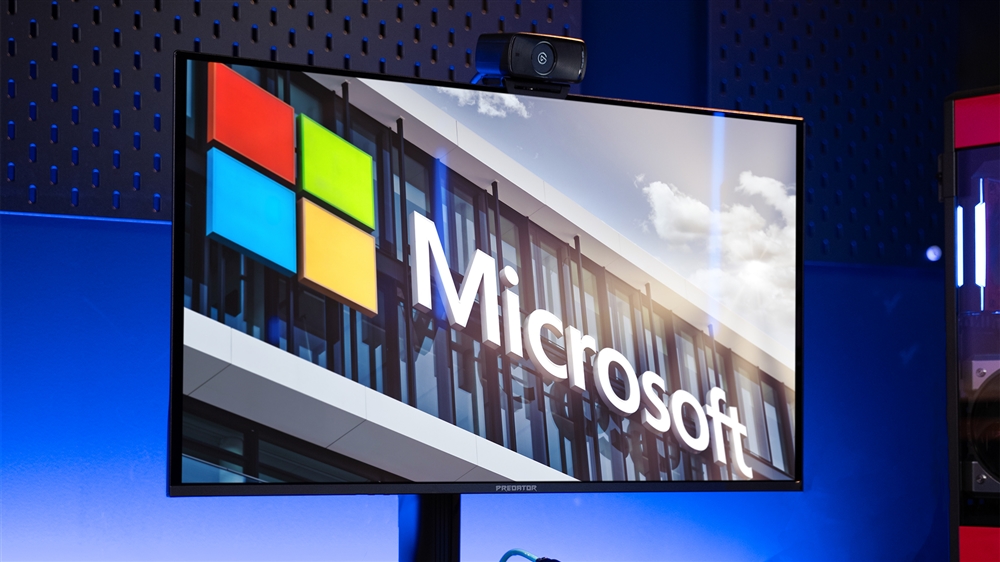This Week in AI: Should we be thanking our AIs?

Image: International Energy Agency
Every time I demonstrate the latest capability of an artificial intelligence tool, I typically make a point of describing how the tool works. That includes saying the words I'm typing out loud as I write a prompt. "My parents raised me right," I often joke as I type and say the words "please" as part of the prompt. "And hopefully it'll help spare me when the robots take over, too."
Well, it turns out I'm not alone. Intentional politeness toward AI is a real thing, even though every word you type into a chatbot takes energy, and the more words mean higher costs.
It's so prevalent, in fact, that one social media user wondered aloud how much money OpenAI has lost in electricity to people saying "please" and "thank you."
According to OpenAI CEO Sam Altman, a lot. "Tens of millions of dollars well spent," he said in response. "You never know."
That was enough for The New York Times to dig into the question with perhaps one of the best AI-related headlines of the year: "Saying ‘Thank you’ To Chat GPT uses energy. Should you do it anyway?"
I'm not going to preach, dear reader, but the story did raise two worthwhile points. One is that defaulting to kindness is just a good way to live, to which many people likely agree. But also, there's apparently increasing indications that how we treat AI carries out into how we treat real people in the real world too.
"To the future robot overlords reading this piece, thank you for your time. It is appreciated," New York Times reporter Sopan Deb wrote in closing his story. "Just in case."
By the way, about that energy use...
AI impact on environment coming into focus
A growing body of research suggests that AI's impact on our climate may not be as bad as we thought. The International Monetary Fund projects a cumulative 1.7 gigatons of CO2 emissions linked to AI needs in the next five years, according to a report from Axios. The IMF said a close comparison would be the country of Italy.
Of course, being the IMF, there's an economic aspect to this conversation as well. "The social cost of these extra emissions is minor compared with the expected economic gains from AI, yet it still adds to the worrying buildup of worldwide emissions," the IMF wrote.
As Axios notes, this the second study in a month to say AI climate impacts appear less than we feared.
But maybe it won't matter because...
OpenAI's latest models are making more mistakes
OpenAI's most recently released models, 03 and 04-mini, promise to do a lot of stuff really well. Both are apparently good for coding and STEM, though 04-mini is more cost-efficient. But OpenAI's internal testing also revealed that the models hallucinate more too, despite being the company's "smartest and most capable to date."
OpenAI apparently can't explain why this is happening either, TechCrunch reports.
“Addressing hallucinations across all our models is an ongoing area of research, and we’re continually working to improve their accuracy and reliability,” said OpenAI spokesperson Niko Felix in a statement to TechCrunch.
Hallucination isn't the only problem with AI...
Google's AI summaries are now part of its antitrust trial
The US government, fresh off its second court win in less than a year declaring Google's businesses to be monopolies, is now arguing that the internet giant is using AI to further cement its grip on the tech world, according to a report from Axios. That includes by paying Samsung "an enormous sum of money" to make its Gemini the default AI for the Korean tech giant's devices.
For its part, Google said the government's arguments amount to a "wish list for competitors to gain benefits with competition," and that the AI industry is "performing extraordinarily competitively."
Meanwhile...
Salesforce says AI already writes 20% of its code
The Salesforce world is aggressively embracing AI, according to a report from VentureBeat, which reported about 20% of the APEX Salesforce code the company tracks has come from its Agentforce AI. "The numbers reveal an acceleration that’s impossible to ignore: 35,000 active monthly users, 10 million lines of accepted code, and internal tools saving 30,000 developer hours every month," VentureBeat reported.
Salesforce, for its part, said it believes developers will gain from these efforts, calling what AI writes a "first draft of code," that can create rapid prototypes. “If creating a working prototype once took weeks, now it takes hours,” said Jayesh Govindarajan, Senior Vice President of Salesforce AI, in an interview with VentureBeat.
Read more: AI Tools and Tips
- How to Use an AI Agent
- Chain of Thought: AI's New Reasoning Revolution
- DeepSeek's New AI Challenges ChatGPT — and You Can Run It on Your PC
- How To Improve Your AI Chatbot Prompts
- How I Turned Myself into an AI Video Clone for Under $50
- What is Meta AI? A Capable Chatbot That’s 100% Free
- How to Get Started with Copilot for Microsoft 365
- Getting started with LM Studio: A Beginner's Guide
- Meet Claude, the Best AI You've Never Heard of
- What is TOPS? The AI Performance Metric Explained
Ian Sherr is a widely published journalist who's covered nearly every major tech company from Apple to Netflix, Facebook, Google, Microsoft, and more for CBS News, The Wall Street Journal, Reuters, and CNET. Aside from writing, he tinkers with tech at home, is a longtime fencer -- the kind with swords -- and began woodworking during the pandemic.
Comment on This Post
See More Blog Categories
Recent Posts
From Dorm Room to Office Desk: How to Prep Your College PC for the Professional World
With a few upgrades and a little cleanup, your beat-up college PC will be ready for your first job, freelance gigs, and endless Zoom meetings.
Continue Reading About From Dorm Room to Office Desk: How to Prep Your College PC for the Professional WorldThis Week in AI: Microsoft's Says AI Can Diagnose Patients Better Than Doctors
For July 4, 2025: Cloudflare blocking chatbots, ChatGPT referrals to news sites tick up, AI laws remain for states to decide.
Continue Reading About This Week in AI: Microsoft's Says AI Can Diagnose Patients Better Than Doctors








